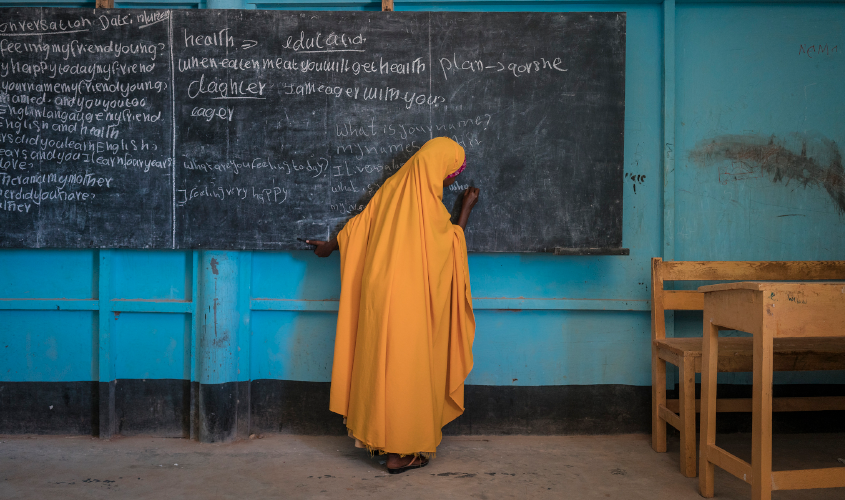Education as a Human Right: Ensuring that Children Learn During Crisis and Emergencies

Child at a school in Somalia. Photo © UNICEF/Mackenzie Knowles-Coursin
On December 10, the United Nations marked Human Rights Day, celebrating the 70th anniversary of the signing of the Universal Declaration of Human Rights. In one critical clause of the declaration, the signatories emphasized that:
“Everyone has the right to an education. Education shall be free, at least in the elementary and fundamental stages…Education shall be directed to the full development of the human personality and to the strengthening of respect for human rights and fundamental freedoms. It shall promote understanding, tolerance and friendship among all nations, racial or religious groups, and shall further the activities of the United Nations for the maintenance of peace.”
Why does the right to education configure in a declaration of human rights? Why is it essential that education stands among other rights such as right to a fair trial, access to justice, right to life, freedom from slavery, and many others?
Without an education, children will not be equipped with the tools necessary to tear down social barriers, break vicious cycles of poverty, or better their communities after crisis. Education is essential during times of conflict, when schools are shut down, used for military purposes, or put under constant threat due to fighting.
The Global Business Coalition for Education (GBC-Education) is working hard to protect the right to an education for children living in conflict zones and for those who are fleeing their homes. Through its Rapid Education Action (REACT) initiative, GBC-Education is connecting the private sector with actors on the ground – implementation partners who seek to deliver educational and employment opportunity. For example, NaTakallam – an organization participating in REACT – is enabling Arabic-speaking refugees to teach Arabic and gather an income.
Business is also lending help through other means; HP and ITWORX Education are supporting refugee children escaping the conflict in Syria, bringing learning opportunities through technology and mobile devices.
As we enter 2018, the world faces numerous challenges to education – including the conflict in Syria, natural disasters, and the burgeoning refugee and displaced persons crisis.
How the world – and the business community – tackles the challenges to education will be critical toward protecting fundamental human right outlined by the United Nations 70 years ago.
